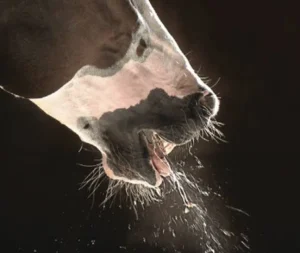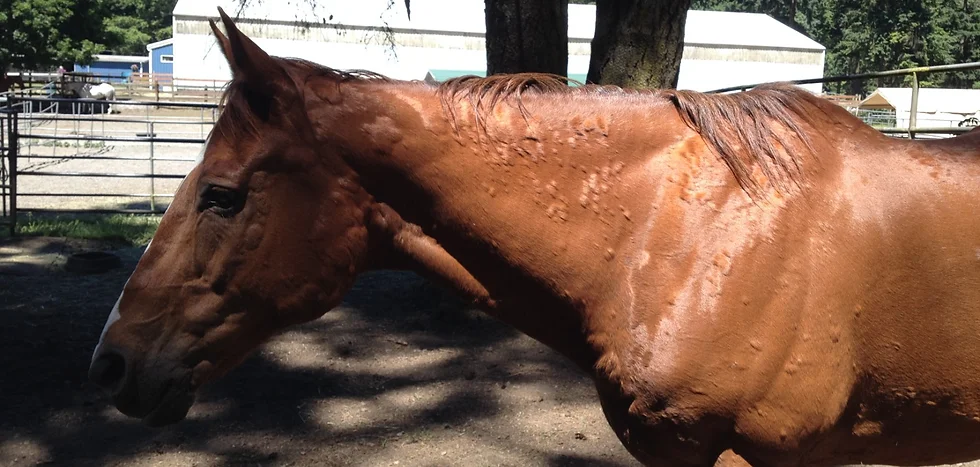Understanding Horse Allergies: A Comprehensive Guide
Whether you’re a rider, a horse owner, or simply an admirer, understanding horse allergies can help you manage symptoms and enjoy your time around horses more comfortably.
What Are Horse Allergies?
Horse allergies are an immune system response to proteins found in a horse’s saliva, dander (tiny flakes of skin), urine, and feces. These proteins can trigger allergic reactions when they come into contact with the skin, eyes, or respiratory system of someone who is sensitive.
Common Symptoms of Horse Allergies



- Sneezing: Frequent sneezing, especially in places where horses are present.
- Runny or Stuffy Nose: A congested or dripping nose is a common reaction.
- Itchy Eyes: Red, itchy, or watery eyes can be a sign of an allergy.
- Coughing and Wheezing: These respiratory symptoms can occur, particularly if you are exposed to horse dust or dander.
- Skin Reactions: Hives, eczema, or rashes may appear if the skin comes into contact with allergens.
Causes and Triggers
The main triggers for horse allergies are:
- Horse Dander: Small flakes of skin that are constantly shed by horses can become airborne and be inhaled.
- Horse Saliva: When horses lick themselves or each other, their saliva can dry and become airborne.
- Horse Urine and Feces: These can release particles into the air that cause allergic reactions.
Managing Horse Allergies
- Create a Barrier: If you handle horses, wearing protective clothing like gloves and a mask can reduce exposure to allergens. Regularly wash your clothes and change them after contact with horses.
- Allergen-Free Zones: Set up a separate area for horses that is well-ventilated and away from your living spaces to minimize allergen spread.
- Clean Regularly: Regular cleaning of stables and horse equipment can reduce the amount of dander and other allergens. Use HEPA filters in vacuums and air purifiers to trap allergens.
- Grooming and Care: Regular grooming of horses can help reduce dander. Some people find that feeding horses a special diet or using certain supplements may help reduce allergens in their dander.
- Medication: Over-the-counter antihistamines or decongestants can help manage symptoms. For more severe allergies, consult a healthcare provider about prescription medications or allergy shots (immunotherapy).
- Environmental Control: Keeping horses outside as much as possible and ensuring good ventilation in barns and stables can help reduce indoor allergen levels.
Alternative Approaches
If managing allergies with traditional methods isn’t enough, you might explore:
- Hypoallergenic Horse Breeds: Some horse breeds are known to produce fewer allergens than others. While no horse breed is entirely hypoallergenic, breeds like the American Quarter Horse and the Icelandic Horse may be less likely to trigger allergies.
- Desensitization Therapy: Also known as allergy shots, this treatment gradually desensitizes your immune system to allergens over time. It can be effective but requires a long-term commitment.




